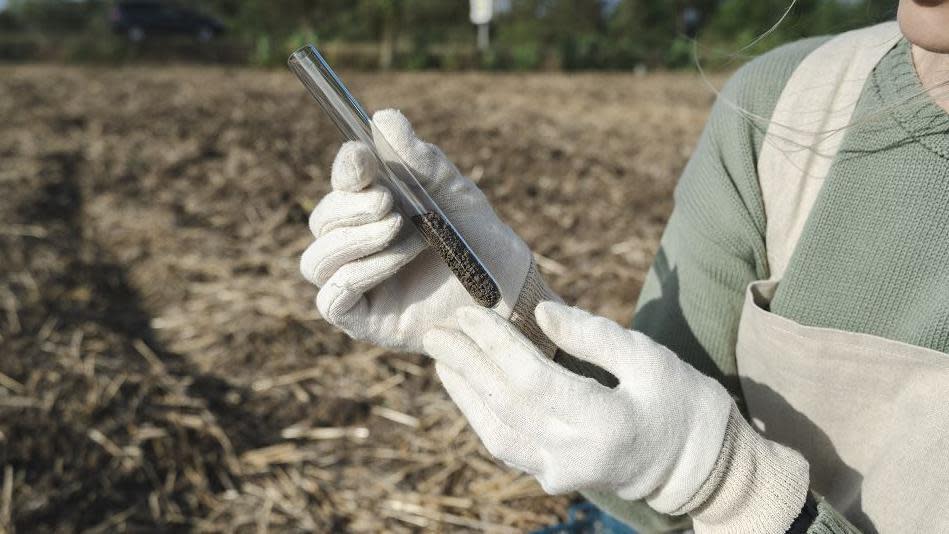Agricultural planning fraud 'not properly probed'

Public bodies failed to proactively investigate potentially widespread fraud in agricultural planning applications, a watchdog’s report has found.
The failures have undermined confidence in the planning system, a joint report from the NI Audit Office and Local Government Auditor has concluded.
The potential fraud involves nearly 3,500 falsified soil samples across more than 100 different planning applications.
The soil samples are required when seeking planning approval for certain intensive farming practices.
The samples are to provide assurance that fields are able to absorb material such as slurry; and that this material will not run off into streams and rivers.
Inertia, inconsistency and buck-passing
In October 2022, the NI Environment Agency (NIEA) first became aware that misrepresented soil sample results had been submitted to them.
Laboratory reports had been changed before they were sent to the NIEA or in some cases entirely fabricated.
The NIEA quickly notified relevant government departments and the local councils which are responsible for making planning decisions.
From that point the investigation was characterised by inertia, inconsistency and buck-passing.
The report found:
There was a lack of effective collaboration between public bodies
There was a failure by councils to start an investigation of potential planning fraud on a timely basis
The Department for Infrastructure considered it inappropriate to get more directly involved to ensure that all affected councils had started a fraud investigation
Ineffective controls failed to detect the problem earlier.

'More active role'
The NI Audit Office began investigating the official response in March 2023, after a member of the public raised concerns about the handling of the case.
Auditor General Dorinnia Carville said it was "very disappointing" that the Department for Infrastructure, which has responsibility for oversight of the NI planning system, considered it inappropriate to get more directly involved in the issue.
"As a result, an opportunity to ensure that all affected councils had initiated an investigation into potential fraud was missed," she added.
"This report recommends that the department takes a more active role should such sector-wide issues arise in future."
The Local Government Auditor, Colette Kane, said it was "alarming and a matter of great concern" that any council could consider the submission of falsified information in a planning application to be anything other than potential fraud.
She said there had been a lack of action by some affected councils, even after they were prompted by the Audit Office.


